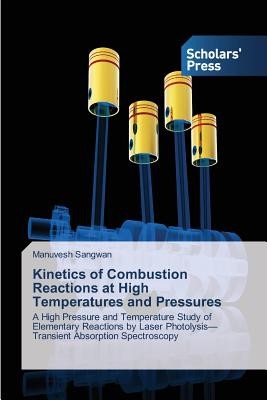
- We will send in 10–14 business days.
- Author: Sangwan Manuvesh
- Publisher: Scholars' Press
- Year: 2015
- Pages: 200
- ISBN-10: 3639761847
- ISBN-13: 9783639761849
- Format: 15.2 x 22.9 x 1.2 cm, softcover
- Language: English
- SAVE -10% with code: EXTRA
Kinetics of Combustion Reactions at High Temperatures and Pressures (e-book) (used book) | bookbook.eu
Reviews
Description
Elementary reactions are central part of models of combustion processes. Reaction conditions with high and variable pressures are encountered in practically important combustion process, e.g in internal combustion engines and rocket combustion chambers. It is important to study the kinetics of elementary reactions involved in combustion processes. Many of these reactions are of a recombination/dissociation nature or proceed via an intermediate complex, and, therefore, are pressure dependent. Internal engine knock, emission of environmentally noxious substances (such as NOx, soot, unburned hydrocarbons, heavy metals) are the problems which require understanding of comprehensive kinetics mechanisms with well characterized elementary reactions. Despite the substantial progress in measurement of elementary reactions at well controlled conditions, the experimental kinetic data required for advancement of combustion model at elevated pressures and temperatures is insufficient. Reliable high pressure and high temperature data is required to both validate and improve predictive model performance at pressures greater than one atmosphere, which is usually the case in combustion.
EXTRA 10 % discount with code: EXTRA
The promotion ends in 17d.23:48:10
The discount code is valid when purchasing from 10 €. Discounts do not stack.
- Author: Sangwan Manuvesh
- Publisher: Scholars' Press
- Year: 2015
- Pages: 200
- ISBN-10: 3639761847
- ISBN-13: 9783639761849
- Format: 15.2 x 22.9 x 1.2 cm, softcover
- Language: English English
Elementary reactions are central part of models of combustion processes. Reaction conditions with high and variable pressures are encountered in practically important combustion process, e.g in internal combustion engines and rocket combustion chambers. It is important to study the kinetics of elementary reactions involved in combustion processes. Many of these reactions are of a recombination/dissociation nature or proceed via an intermediate complex, and, therefore, are pressure dependent. Internal engine knock, emission of environmentally noxious substances (such as NOx, soot, unburned hydrocarbons, heavy metals) are the problems which require understanding of comprehensive kinetics mechanisms with well characterized elementary reactions. Despite the substantial progress in measurement of elementary reactions at well controlled conditions, the experimental kinetic data required for advancement of combustion model at elevated pressures and temperatures is insufficient. Reliable high pressure and high temperature data is required to both validate and improve predictive model performance at pressures greater than one atmosphere, which is usually the case in combustion.


Reviews